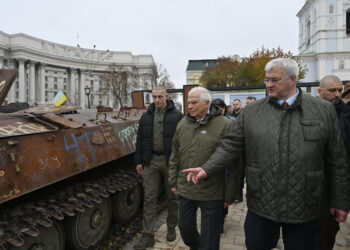Brussels – The world’s greats in little Fasano, in the province of Brindisi. Guests of Premier Giorgia Meloni, president of the G7, in the Borgo Egnazia resort. On the summit’s first day, debates on Africa, Ukraine, and the Middle East are on the agenda. Volodymyr Zelensky has also arrived in Puglia; tomorrow will be the Pope’s first time at the G7. But above all, the controversy over the removal of the reference to the right to abortion from the leaders’ draft final declaration is holding the stage.
Among all the issues on the table, Meloni places the emphasis on Africa. That is why—she explained in inaugurating the proceedings—she chose to gather the leaders in southern Italy, in a land that overlooks the south of the world and in the heart of the Mediterranean. “As you know, the Italian presidency wanted to devote ample space to a continent that is fundamental for the future of all of us, Africa, which asks us for a different approach from the one we have often shown in the past,” says the Council President.
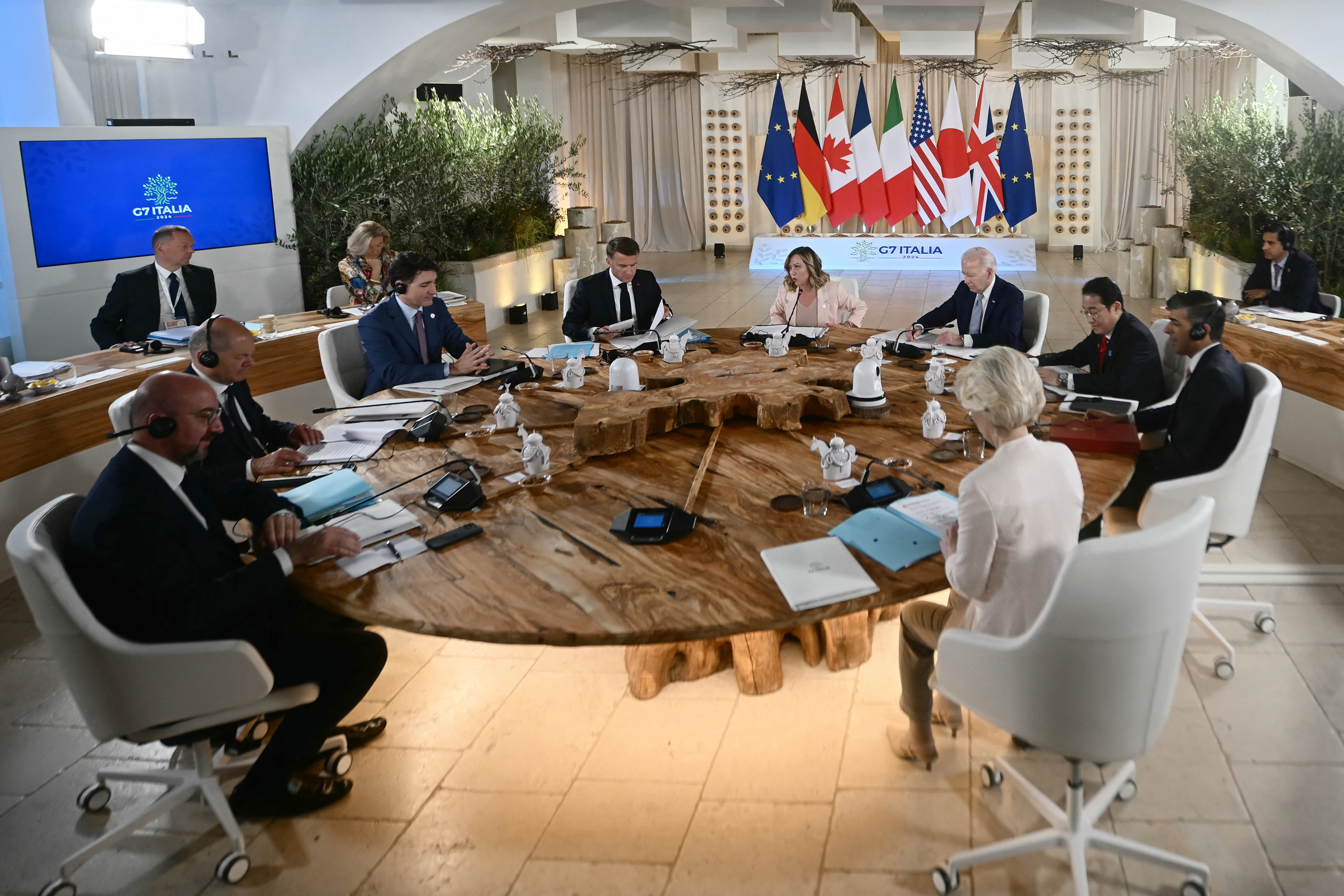
On the renewed focus on Africa, Meloni cashes in—and not just today—the support of EU leaders. For Ursula von der Leyen, “Our partnership with Africa has transformed from development aid to a partnership of equals.” According to Charles Michel, “We can no longer avoid opening a serious debate on multilateralism, particularly on multilateral development banks.” The President of the European Commission warns that “the G7’s offer must be better” than those of China, Russia, and the Middle East, the other international players who have their eyes on the continent’s opportunities. It must “offer real long-term sustainable investments that create jobs” for local communities.
Along with the Global Gateway, the EU’s strategy to develop new infrastructure in developing countries, the Italian government is targeting the Mattei Plan and the Partnership for Global Infrastructure and Investment to “support the development of the most fragile nations, especially in Africa and Asia.” The latter is an economic and infrastructure corridor project to link India, the Middle East, and Europe, supported by the Group of Seven. “We intend to create synergy activities between these three projects to maximize efforts and investments to achieve more benefits for all,” she said.
The issue, as stressed by Meloni, is inextricably linked to migration management. “As we work on the root causes” of migration, “we have entered into agreements with third countries. These are partnerships that follow a comprehensive approach: whatever agreement we have with third countries, it has to fit very clearly within our set of rules and correspond to European values,” assured von der Leyen, who has been under indictment in recent months for signing understandings with authoritarian regimes (Tunisia, but also Egypt and Mauritania) to stop migrants from leaving for Europe.
On the crisis in the Middle East, the leaders of Canada, Germany, France, Japan, Italy, the United Kingdom, and the United States expressed full support for the three-step plan to end hostilities presented by Joe Biden. “We need an immediate ceasefire, the release of hostages, and a lasting end to this crisis. We stand ready to do our part with swift and effective action on recovery and reconstruction leading to a two-state solution,” von der Leyen said in a post on X.
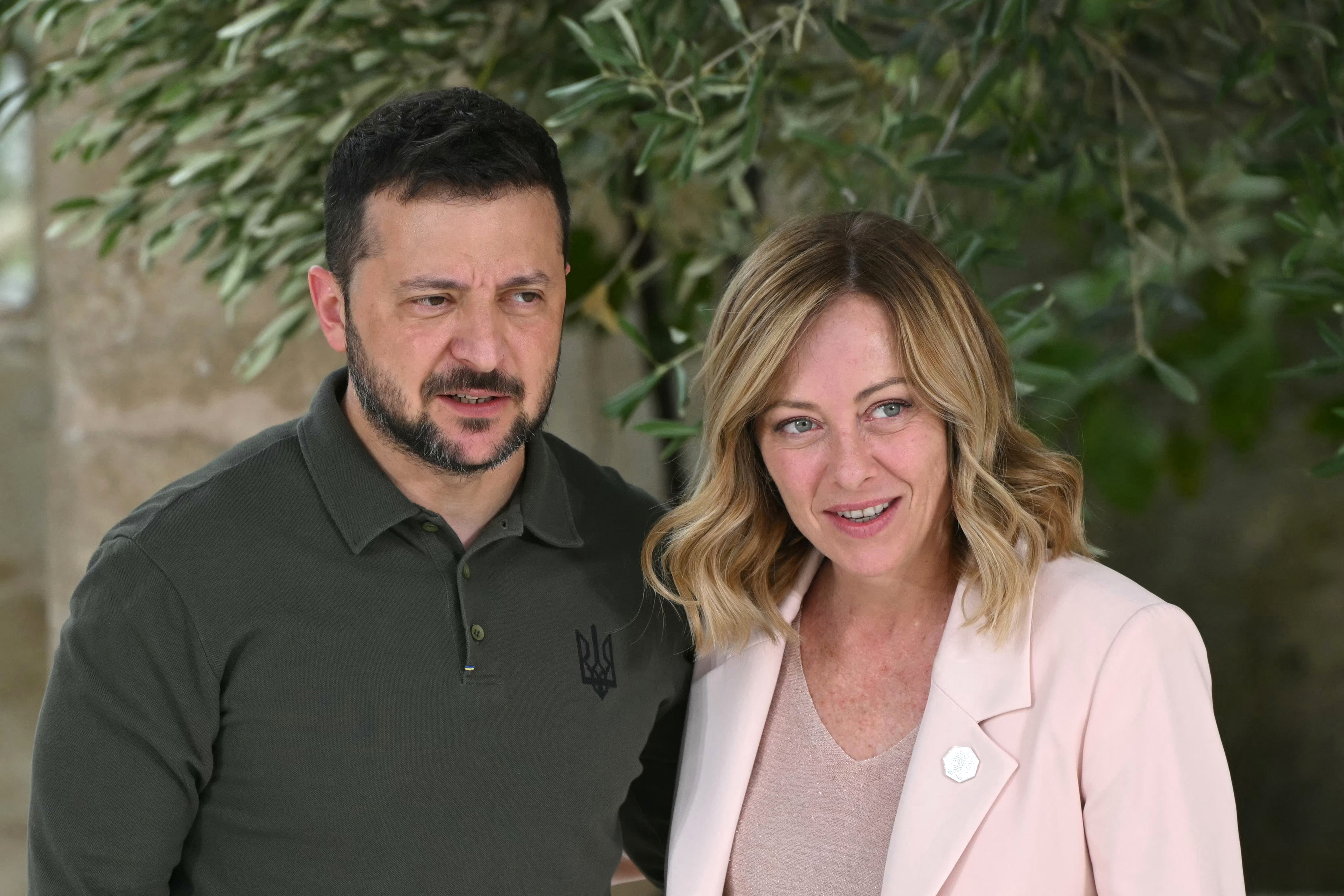
On the Ukraine front, the summit was expected to reach an agreement on a $50 billion loan to Ukraine, backed by returns from frozen Russian assets. Zelensky departed Borgo Egnazia satisfied, stating on Telegram that he found “clear support for Ukraine, international law, and just peace” and thanked the leaders. On the sidelines of the proceedings, von der Leyen announced the understanding, explaining that “all G7 partners will contribute to this loan.”
Tomorrow will be the turn of the debate on generative artificial intelligence, on which Pope Francis will also speak. Tied to the pontiff’s participation is the element of controversy that has been holding sway since before the work began: Italy reportedly insisted on removing from the traditional final joint declaration the point stressing the importance of guaranteeing “effective and safe access to abortion”. Sparking irritation from France and Canada, which called for strengthening the final document of the G7 in Hiroshima a year ago, which spoke of “legal and safe access,” but also from the United States. Reportedly, in the bilateral meeting between Biden and Meloni scheduled for tomorrow, the U.S. president will insist with the Italian premier on the issue of human rights.
English version by the Translation Service of Withub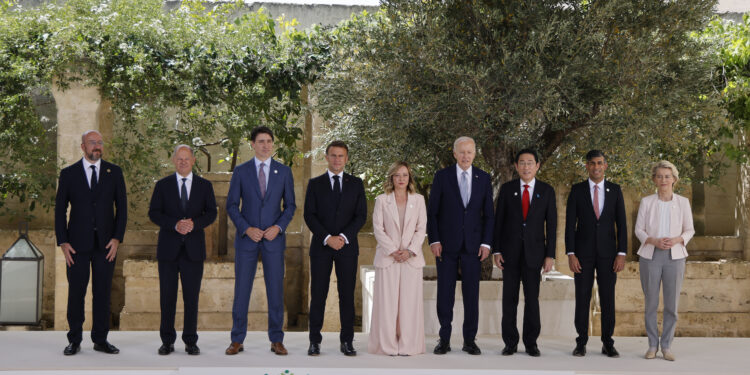

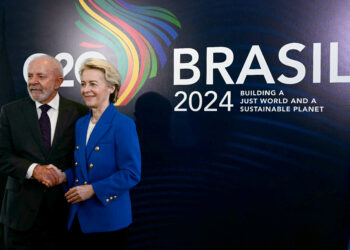

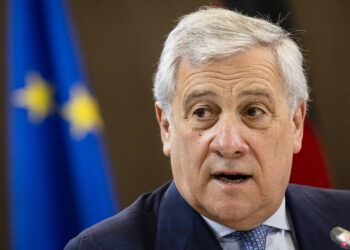
![La ministra degli Esteri della Finlandia, Elina Valtonen [Bruxelles, 18 novembre 2024]](https://staging.eunews.it/wp-content/uploads/2024/11/valtonen-350x250.png)
